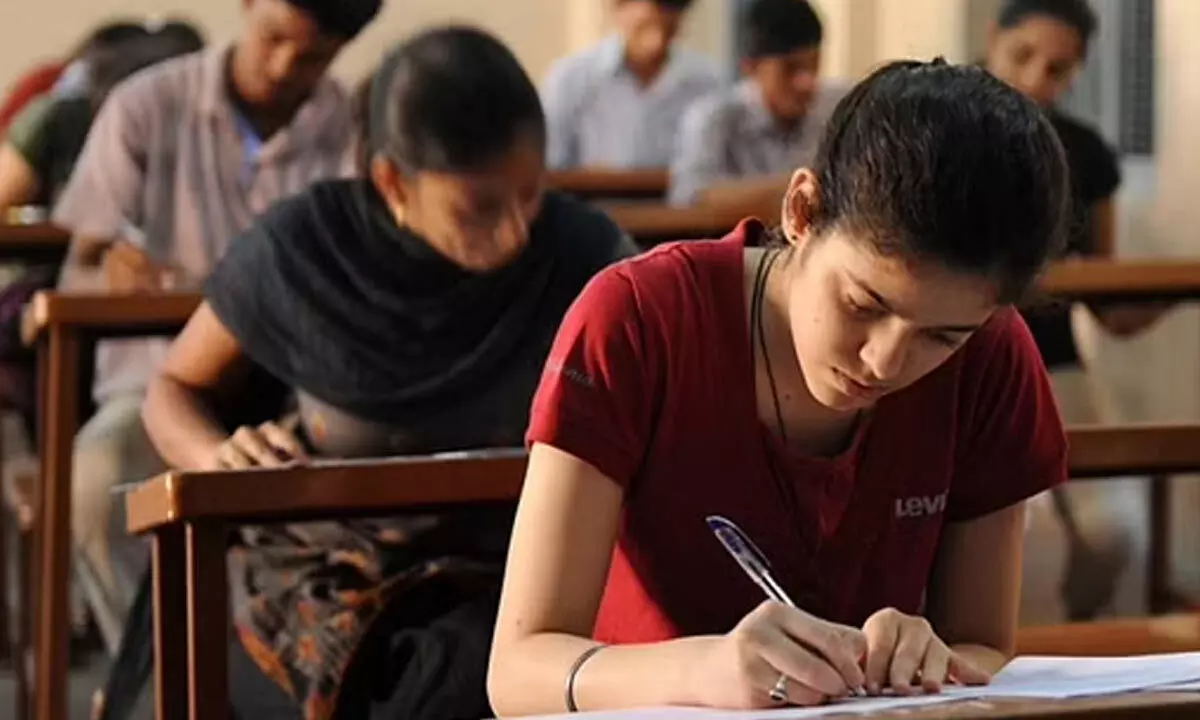Exams, results major cause of anxiety among school students: NCERT survey

Representational image
Studies, examinations and results are major causes of anxiety among school students while over 33 percent comply with peer pressure most of the time, a survey on mental health and well-being of students by NCERT said.
NEW DELHI: Studies, examinations and results are major causes of anxiety among school students while over 33 percent comply with peer pressure most of the time, a survey on mental health and well-being of students by NCERT said.
The survey reported that at least 73 per cent of students are satisfied with their school life, while over 45 per cent students are not satisfied with their body image.
A total of 29 per cent school students lack concentration, while 43 per cent students between classes 6 to 12 have mood swings.
The National Council of Educational Research and Training (NCERT) surveyed over 3.79 lakh students from 36 states and UTs.
The Manodarpan Cell of the NCERT undertook the task of conducting the survey to help understand the perceptions of school students on aspects related to their mental health and well-being.
It collected information from students across gender and grades -- middle state (6-8) and secondary stage (9 to 12) between January to March 2022.
The anonymity of participants was ensured by making the name column optional, allowing students the comfort, privacy and independence to respond, the NCERT said.
"Decline in satisfaction with personal and school life is seen as students shift from middle to secondary stage. The secondary stage is marked by challenges of an identity crisis, increased sensitivity towards relationships, peer pressure, fear of board examination, anxiety and uncertainty experienced by students for their future admissions, career etc," the survey report released on Tuesday said.
The focus of the survey was on the aspects known to contribute to the mental health and well-being of students.
It explored students' perceptions about their own self and how they think others view them in the context of feelings, academics, relationships, peers, managing emotions, handling challenging situations etc as these are important determinants which impact mental health, the NCERT said.
The survey found that 81 per cent of respondents attribute studies, exams and results as major causes of anxiety.
As many as 43 per cent of the total respondents admitted being able to quickly adapt to changes and the response of students at the middle stage (46 per cent) was higher than students at the secondary stage (41 per cent).
A total of 51 per cent of students face difficulty in learning online while 28 percent of the respondents students are hesitant in asking questions, as per the survey.
It found that "yoga and meditation, attempts to shift the way they think and writing journals were reported as frequently adopted strategies by students for coping with stress".
Trusting others is another aspect looked into as it helps in relating with others, forming social connections and enhances the quality of relationships, the NCERT said.
A total of 27 per cent of the students reported that they frequently trust people, the survey said.
A lower percentage of students' responses at both the middle stage (27.4 per cent) and secondary stage (26.5 per cent) reflects lower trusting ability among students of both stages.
Exploring the contentment of students with personal and school life indicates higher satisfaction towards school life in comparison to personal life.
Findings show encouraging trends as researches suggest that students' sense of belonging to school has an influence on their academic engagement.
Higher school engagement leads to higher academic achievement and a reduced likelihood of students dropping out of school, the NCERT said.
The spread of the COVID-19 pandemic impacted different aspects of life in several spheres, resulting in changes in routine, lifestyle and the ways in which we interact with others, it said.
The survey also covered the emotions experienced by students, especially during the unprecedented times of COVID-19, the attempts of continuing teaching-learning online and the challenges experienced by students.
The focus of the survey was on the aspects known to contribute to the mental health and well-being of students.
It explored students' perceptions about their own self and how they think others view them in the context of feelings, academics, relationships, peers, managing emotions, handling challenging situations etc as these are important determinants which impact mental health, the NCERT said.
















